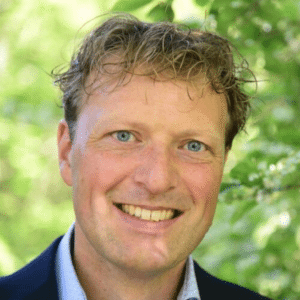Bernhoven Hospital was on the frontlines as the primary Dutch instances of COVID-19 surfaced within the southern province of Brabant. The hospital made constructive headlines because of its heat relationships with employees and native residents. This is without doubt one of the predominant causes the well being care facility will not be ruled remotely, however partially financed by its personal employees, starting from medical specialists to cleansing personnel. From the second the hospital selected this new administration mannequin in 2014, there has additionally been a shift in the direction of changing into a ‘neighborhood hospital’ for the area people and its employees.
Step one in the direction of worker participation at Bernhoven Hospital was taken by the medical specialists. They reinvested their compensation for being employed into their very own hospital in 2016.
From 2018 onward, different employees members have been allowed to take part additionally. Furthermore, all staff obtain a yearly participation dividend of 100 euros for the next 5 years, as an alternative of extra wage. In the meantime, a complete sum of 20.5 million euros has been invested by employees and neighbours mixed, for which an annual compensation of 4% will likely be paid. Bernhoven Hospital goals to supply its employees actual shares within the group within the close to future.
MKB Netherlands, the Dutch SME affiliation, pleaded for workers’ solidarity final week, and requested them to contribute to the restoration of firms in wake of the COVID-19 disaster.
The second authorities aid-package for firms expects staff to partially waive wages or conform to postpone vacation pay as a way to reduce the monetary burden on firms.
Labor unions have been clearly reluctant, as a result of staff would revenue proportionally much less from the sturdy development of firm income. Participation schemes, wherein staff share the dangers now, however profit from later constructive return, might be an answer to this dilemma.

Loyalty
A latest ballot by impartial SME various finance thinktank ‘Stichting MKB Financiering’ and SME affiliation ‘ONL’ confirmed that 22 p.c of Dutch entrepreneurs are open to letting personnel take part, and profit, from shared future income. Amongst start-ups this pattern of giving personnel the chance to partially share in income by means of choices, in change for a decrease wage, has been happening for a while.
Worker participation might each stimulate, in addition to reward, loyalty.
Internationally, a number of concepts on the best way to facilitate worker shareholdership have surfaced lately, amongst which the Worker Possession Belief in Scotland, the so-called ‘Mitarbeiterbeteiligung’ in Germany, and the Worker Inventory Possibility Plan (ESOP) in america.
There certainly are sensible considerations to worker participation, just like the valuation of shares, employees leaving the group, the focus of danger, in addition to the distribution and change of shares at low prices. We shouldn’t be blind to those, however somewhat use the creativity of stakeholders to experiment, as a way to keep afloat amidst this disaster by avoiding the buildup of better money owed. A lot work is being put into contractual improvements and options to make these items potential within the Netherlands, primarily by organizations like Eyevestor, The Share Council, and Agency24.
Bernhoven Hospital illustrates that there are potentialities for bigger organizations to embrace these strategies.
One other nice, worldwide instance of a cooperative group is the Spanish Mondragon with a yearly turnover of 12 billion euros and 80,000 staff. But, this mannequin might match many small and mid-sized enterprises as nicely, on condition that their transition could be actively incentivized.
A number of gamers throughout the Dutch ecosystem might play a job right here: the federal government might create fiscal incentives, whereas financers might cooperate by sharing their insights and companies. Monetary-technological suppliers might present the infrastructure and pension funds might, in flip, provide funding.
Participation transforms staff into co-workers. On this method, we evolve from an financial system consisting of employers and staff to value-creating communities.
 Ronald Kleverlaan is Chairman Stichting MKB Financiering & Director European Centre for Various Finance at Utrecht College. He’s a global skilled within the area of latest types of financing and advises the European Fee on numerous initiatives. He has been energetic on this sector as a researcher / advisor for over 10 years.
Ronald Kleverlaan is Chairman Stichting MKB Financiering & Director European Centre for Various Finance at Utrecht College. He’s a global skilled within the area of latest types of financing and advises the European Fee on numerous initiatives. He has been energetic on this sector as a researcher / advisor for over 10 years.

Prof. Dr. Erik Stam is Head of the Utrecht College Faculty of Economics & Full Professor of Technique, Group and Entrepreneurship. Stam is serving Utrecht College, as Dean of the Utrecht Faculty of Economics, Full Professor of Technique, Group & Entrepreneurship, Board Member of Strategic Analysis Theme Establishments for Open Societies, and College Director of the Heart for Entrepreneurship.



